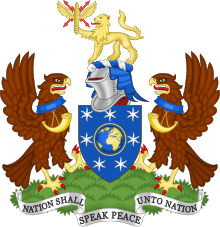
There are several different types of mass media in the United Kingdom: television, radio, newspapers, magazines and websites. The United Kingdom is known for its large music industry, along with its new and upcoming artists. The country also has a large broadcasting, film, video games and book publishing industries.
The United Kingdom has a diverse range of providers, the most prominent being the publicly owned and funded British Broadcasting Corporation (BBC). The BBC's largest competitors are ITV plc, which operates 13 of the 15 regional television broadcasters that make up the ITV Network, the Sky Group and the publicly owned and commercially funded Channel Four Television Corporation.
Regional media is covered by local radio, television and print newspapers. Reach plc (formerly Trinity Mirror) operates 240 local and regional newspapers. The Secretary of State for Culture, Media and Sport has overall responsibility over media ownership and broadcasting.[1]
The main BBC public service broadcasting channels accounted for an estimated 28.4% of all television viewing; the three main independent channels accounted for 29.5% and the increasingly important other satellite and digital channels for the remaining 42.1%.[2] Sales of newspapers have fallen since the 1970s and in 2009 42% of people reported reading a daily national newspaper.[3] In 2010, 82.5% of the United Kingdom population were Internet users, the highest proportion amongst the 20 countries with the largest total number of users in that year.[4]
- ^ "Secretary of State for Digital, Culture, Media and Sport - GOV.UK". www.gov.uk. Retrieved 2 May 2021.
- ^ Ofcom "Communication Market Report 2010", 19 August 2010, pp. 97, 164 and 191, retrieved 17 June 2011.
- ^ "Social Trends: Lifestyles and social participation", Office for National Statistics, 16 February 2010, archived from the original on 24 June 2011.
- ^ "Top 20 countries with the highest number of Internet users", Internet World Stats, archived from the original on 10 June 2011.